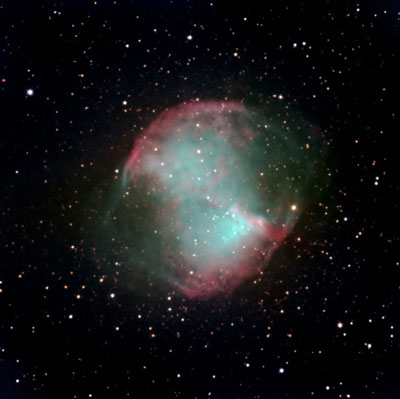 Researchers from Europe and the USA have ruled out a multitude of possible parameters for dark photons - a type of dark matter and energy - with the help of white dwarfs. In some aspects, the shining of these dying stars gives more information on dark forces than is provided by earth-based laboratories.
Researchers from Europe and the USA have ruled out a multitude of possible parameters for dark photons - a type of dark matter and energy - with the help of white dwarfs. In some aspects, the shining of these dying stars gives more information on dark forces than is provided by earth-based laboratories.
Nov 5th, 2013
Read more
India on Tuesday launched its first spacecraft bound for Mars, a complex mission that it hopes will demonstrate and advance technologies for space travel.
Nov 5th, 2013
Read more
 The international Square Kilometre Array (SKA) office awarded contracts to prepare for the world's largest radio telescope yesterday, marking the start of the return on Australia and WA's investment in the ambitious Square Kilometre Array.
The international Square Kilometre Array (SKA) office awarded contracts to prepare for the world's largest radio telescope yesterday, marking the start of the return on Australia and WA's investment in the ambitious Square Kilometre Array.
Nov 5th, 2013
Read more
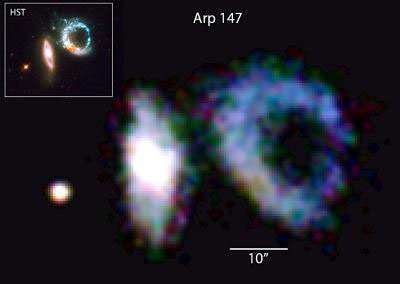 Semiconductors have had a nice run, but for certain applications, such as astrophysics, they are being edged out by superconductors. Ben Mazin, assistant professor of physics at UC Santa Barbara, has developed a superconducting detector array that measures the energy of individual photons.
Semiconductors have had a nice run, but for certain applications, such as astrophysics, they are being edged out by superconductors. Ben Mazin, assistant professor of physics at UC Santa Barbara, has developed a superconducting detector array that measures the energy of individual photons.
Nov 4th, 2013
Read more
Funding for SPIRou, a spectropolarimeter and a high-precision velocimeter optimized for both the detection of habitable Earth twins orbiting around nearby red dwarf stars and the study of the formation of Sun-like stars and their planets, was confirmed today by the Canada-France-Hawaii Telescope (CFHT) observatory.
Nov 4th, 2013
Read more
Using an in-orbit robot to capturing a malfunctioning satellite that is tumbling out of control is currently just a theoretical idea. However, research inspired by nature could take us a small step towards making such science fiction science fact.
Nov 4th, 2013
Read more
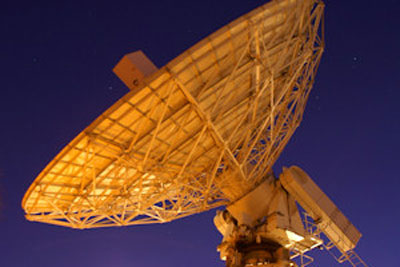 A radio telescope once used to track ballistic missiles has helped astronomers determine how the magnetic field structure and rotation of the young and rapidly rotating Crab pulsar evolves with time.
A radio telescope once used to track ballistic missiles has helped astronomers determine how the magnetic field structure and rotation of the young and rapidly rotating Crab pulsar evolves with time.
Nov 1st, 2013
Read more
Doom may be averted for the Smith Cloud, a gigantic streamer of hydrogen gas that is on a collision course with the Milky Way galaxy. Astronomers using the VLA and GBT have discovered a magnetic field deep in the cloud's interior, which may protect it during its meteoric plunge into the disk of our galaxy.
Oct 31st, 2013
Read more
New research suggests that gravitational unloading significantly impairs the function of endothelial cells, as evidenced by gene expression studies conducted in space.
Oct 31st, 2013
Read more
Astronomers have calculated the odds that, sometime during the next 50 years, a supernova occurring in our home galaxy will be visible from Earth.
Oct 31st, 2013
Read more
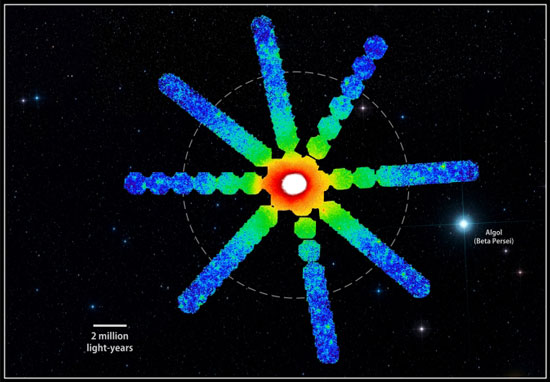 Most of the universe's heavy elements, including the iron central to life itself, formed early in cosmic history and spread throughout the universe, according to a new study of the Perseus Galaxy Cluster using Japan's Suzaku satellite.
Most of the universe's heavy elements, including the iron central to life itself, formed early in cosmic history and spread throughout the universe, according to a new study of the Perseus Galaxy Cluster using Japan's Suzaku satellite.
Oct 31st, 2013
Read more
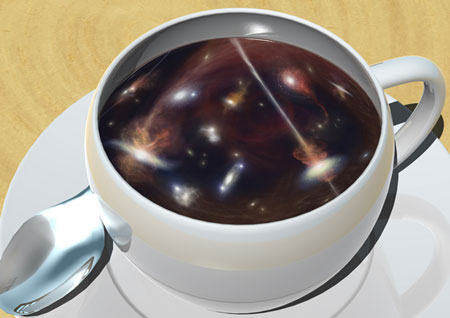 By detecting an even distribution of iron throughout a massive galaxy cluster, astrophysicists can tell the 10-billion-year-old story of how exploding stars and black holes sowed the early cosmos with heavy elements.
By detecting an even distribution of iron throughout a massive galaxy cluster, astrophysicists can tell the 10-billion-year-old story of how exploding stars and black holes sowed the early cosmos with heavy elements.
Oct 30th, 2013
Read more
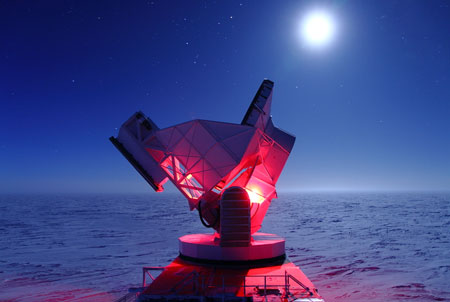 At the South Pole Telescope, scientists measure cosmic radiation still traveling across space from the early days of the universe.
At the South Pole Telescope, scientists measure cosmic radiation still traveling across space from the early days of the universe.
Oct 30th, 2013
Read more
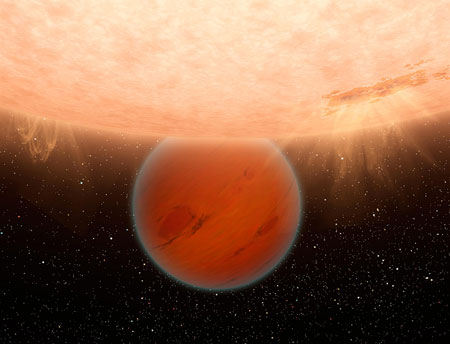 While too hot to support life, Kepler 78b is roughly the size of the Earth.
While too hot to support life, Kepler 78b is roughly the size of the Earth.
Oct 30th, 2013
Read more
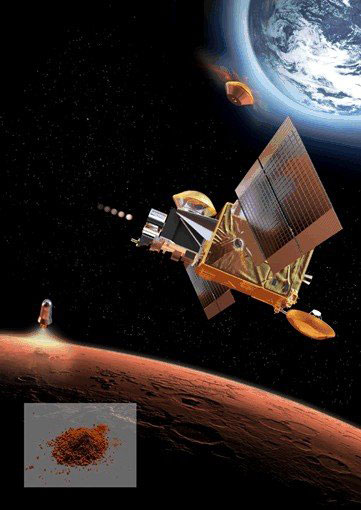 A Mars sample-return mission is one of the most challenging space ventures possible for robotic exploration.
A Mars sample-return mission is one of the most challenging space ventures possible for robotic exploration.
Oct 29th, 2013
Read more
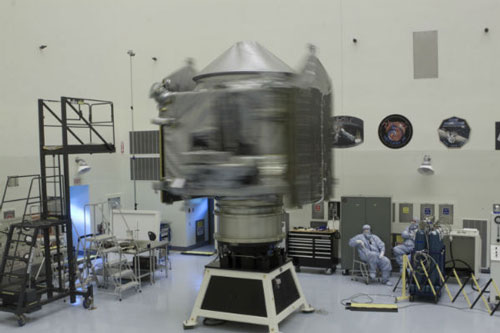 A NASA spacecraft that will examine the upper atmosphere of Mars in unprecedented detail is undergoing final preparations for a scheduled 1:28 p.m. EST Monday, Nov. 18 launch from Cape Canaveral Air Force Station in Florida.
A NASA spacecraft that will examine the upper atmosphere of Mars in unprecedented detail is undergoing final preparations for a scheduled 1:28 p.m. EST Monday, Nov. 18 launch from Cape Canaveral Air Force Station in Florida.
Oct 28th, 2013
Read more
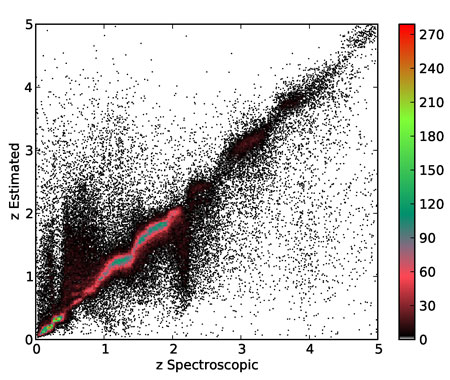 The new HITS research group 'Astroinformatics' will develop methods and software for astronomers and help facilitating the analysis and processing of the rapidly growing amount of data in astronomy.
The new HITS research group 'Astroinformatics' will develop methods and software for astronomers and help facilitating the analysis and processing of the rapidly growing amount of data in astronomy.
Oct 28th, 2013
Read more
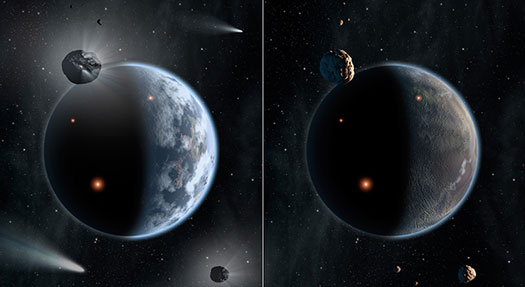 Planets rich in carbon, including so-called diamond planets, may lack oceans, according to NASA-funded theoretical research.
Read more: http://www.nanowerk.com/news2/space/newsid=32939.php#ixzz2ivkRS7Qk
Planets rich in carbon, including so-called diamond planets, may lack oceans, according to NASA-funded theoretical research.
Read more: http://www.nanowerk.com/news2/space/newsid=32939.php#ixzz2ivkRS7Qk
Oct 27th, 2013
Read more
 Researchers from Europe and the USA have ruled out a multitude of possible parameters for dark photons - a type of dark matter and energy - with the help of white dwarfs. In some aspects, the shining of these dying stars gives more information on dark forces than is provided by earth-based laboratories.
Researchers from Europe and the USA have ruled out a multitude of possible parameters for dark photons - a type of dark matter and energy - with the help of white dwarfs. In some aspects, the shining of these dying stars gives more information on dark forces than is provided by earth-based laboratories.
 Subscribe to our Space Exploration News feed
Subscribe to our Space Exploration News feed









